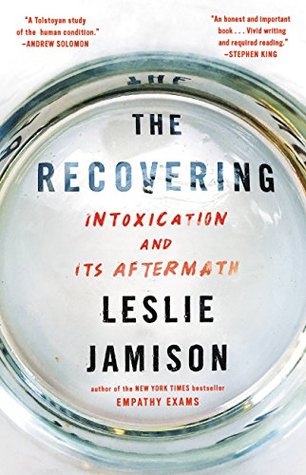More on this book
Community
Kindle Notes & Highlights
With a good feeling, it was always: More. Again. Forever.
There was nothing feigned about how much I loved that icy swell, that sense of so much to say. We had all night.
I wasn’t thinking of the elderly white drunks gathering every morning at the nonwriters’ bars at the edges of our cornfields, veterans and farmers—the ones for whom intoxication wasn’t mythic fuel but daily, numbing relief, the ones who didn’t narrate their drunken binges as brushes against existential wisdom.
“You just got a hundred times more interesting,” he said, and I tried to divide myself by a hundred, right there in front of him, to figure out what I’d been before.
I was starting to learn the social etiquette of the postblackout processing session, letting someone tell me what I’d done and then helping him figure out why I might have done it. I did WHAT? I’d ask. Why would I do THAT? I pictured myself stumbling through the trees, a weird survival impulse at work, my body fleeing my own tyrannical desire to impress. My drunk self was like an embarrassing cousin I was responsible for
It was another layer in the complicated, circular relationship I was constructing between drinking and making: Booze helped you see, and then it helped you survive the sight.
She believed that she was destined for sadness, and destined to spend her life being told to make her sadness less visible.
Drinking felt like the opposite of restriction. It was freedom.
another way to quiet the same stubborn unease I’d always felt in my own skin
At a certain point in my drinking, passing out was no longer the price but the point.
Rhys was always getting accused—by other people, by critics, by readers—of making too much of her humdrum hardships. She knew the charge of self-pity, and alternately loathed herself for it and proudly owned it. She once wrote to a friend: “You see I like emotion. I approve of it—in fact am capable of wallowing in it.”
how booze promised freedom but eventually just left her on her knees, retching.
In vino veritas was one of the most appealing promises of drinking: that it wasn’t degradation but illumination, that it wasn’t obscuring truth but unveiling it.
I am precisely the kind of nice upper-middle-class white girl whose relationship to substances has been treated as benign or pitiable—a cause for concern, or a shrug, rather than punishment. No one has ever called me a leper or a psychopath. No doctor has ever pointed a gun at me. No cop has ever shot me at an intersection while I was reaching for my wallet, for that matter, or even pulled me over for drunk driving, something I’ve done more times than I could count. My skin is the right color to permit my intoxication. When it comes to addiction, the abstraction of privilege is ultimately a
...more
During those California days, I still nursed a certain romantic notion of myself as a lonely writer, drinking heavily but waking every morning to write my novel—not but, actually, something more like and, something more like because.
The joke is clearly on us, his readers, who are doing exactly what Don can’t imagine anyone wanting to do: reading a novel about a punk and a drunk, a would-be writer who can’t summon enough sobriety to tell the story of his own intoxication.


